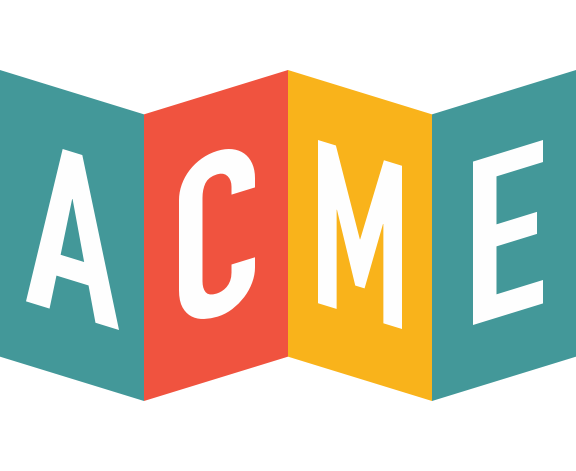
Nonprofit Raffle Laws
Nonprofits heavily rely on fundraising to support their philanthropic efforts. A raffle is a great way to encourage patrons to chip in money for a good cause with the possibility of winning some amazing prizes. Simply promoting the raffle isn’t enough to guarantee its success, however. Taxes and other legal factors come into play when conducting a raffle. It’s crucial to follow legal obligations to guarantee ethical operations. This article will explore the critical factors that allow nonprofits to confidently conduct raffles while remaining compliant with the law.
What is a Raffle for a Nonprofit?
A nonprofit raffle is a fundraising event aimed at raising funds where tickets or entries are sold, and participants stand a chance to win prizes through a random selection process. This type of fundraising is specifically geared towards nonprofits that have 501(c)(3) tax exemption status. Nonprofit organizations utilize raffles as a means of generating funds in a fun and engaging way for their charitable activities and projects. Usually, participants buy tickets, and the winning tickets are selected randomly at a predetermined time or event. Raffles can be done during big events or as a standalone promotion online.
Are There Laws Surrounding Who Can Host a Raffle?
Yes, there are laws surrounding who can host a raffle. Whether or not you can host a raffle depends on your tax exemption status and varies greatly on your local state legislature. Since raffles are considered to be a lottery of sorts, the IRS identifies them as a form of gaming. In legal terms, raffles are outside of your tax exemption status as it’s “unrelated business income” or UBI. Any income from a business or trade that isn’t substantially related to the purpose of your nonprofit would be included under this umbrella. This means you’ll still have to pay taxes on raffle prizes to be in compliance with the law. This could mean taking out a percentage of cash prizes for taxes or having to pay taxes on the cash value of the prizes you’re giving away.
Raffles in Different States
Each state will have different laws, so it’s important to research what your state dictates. We’ll use California as an example of what some state laws look like and compare it to other states.
In California, you must:
- Have a nonprofit, you do not need 501(c)(3) status to conduct a raffle in California.
- Have a nonprofit for one year before you’re allowed to hold a raffle.
- Have good standing with the Attorney General’s office and the raffle registration registry.
- Conduct the raffle under the supervision of someone 18 or older who is a member of the nonprofit.
- Avoid using outside vendors or third parties for your raffle.
- Apply and pay a $30 fee with an entity letter.
In New York, however, the laws are a lot more complex and dictate how much your prizes can be worth, how soon you can allow the sale of raffle tickets, and ask that you fill out forms to obtain a license in order to have the raffle at all. Texas state law states that you must have a nonprofit for at least 3 years before being allowed to create a raffle and it’s illegal to advertise your raffle statewide. This is why it’s important to make sure you check the laws in your state to avoid any mishaps during the creation of your raffle.
Raffle Registration With Your State
Although each state is different, the general idea is the same. After carefully checking your state laws, you’ll likely end up having to pay an application fee and submit information about your raffle and organization. Sometimes the process can feel a little complicated, so it’s important to check all your boxes and make sure you complete everything carefully. Check to make sure that your organization is correctly registered to avoid stoppage in the process. Even though this can feel like a big task for a raffle, the fundraising aspect is what makes it worth everything you’re doing in the end.
Online vs. In-Person Raffles
As we mentioned before, raffles can be conducted online or in-person. You don’t have to hold an event with physical tickets to have a raffle. Each come with their own benefits, however.
Benefits of Online Raffles
Online raffles are an excellent way for nonprofits to maximize their fundraising potential. These digital-based initiatives offer bigger reach, convenience, and accessibility, allowing a wider and more diverse audience to participate in your raffle. Acme can pair perfectly with your next online raffle, allowing you to manage memberships and ticket sales seamlessly. With Acme’s CRM integration and marketing tools, you can learn more about how your members are interacting with your raffles, giving you an opportunity to increase your fundraising capabilities. Putting your raffle on social media enhances promotion and engagement with your fundraising as well. Nonprofits can leverage online raffles to increase their funds without making patrons show up in person to join in.
Benefits of In Person Raffles
Nonprofit organizations can benefit greatly from in person raffles. Events done in person offer a unique experience that encourages community engagement and fosters a sense of connection among participants. The best part is, raffles can easily be added to any other in person events you have scheduled. Acme is here to help make your in-person ticketing process simple with touch-free payment options and a quick deployment. You’ll be able to spend more time focusing on the fun of your raffle and in person events. With a variety of mobile options, you can take Acme with you anywhere to provide your members and new patrons with a seamless experience during your raffle. One of the best parts of in person raffles is the buzz and excitement that comes with being in a group, leading to increased participation. Participants get to witness the drawing of winners firsthand, adding an element of anticipation and transparency to the process. In person raffles offer a memorable and immersive experience that can have a lasting impact on participants and contribute to the overall success of fundraising efforts.
What to Do After Your Raffle
After you announce your raffle winner and thank your participants, make sure you go through their eligibility requirements to receive their prize. You’ll also want to announce your winner for transparency purposes, whether it be on your website, email newsletter, or social media. When all is said and done, you can look back on how your raffle went, giving you the opportunity to improve and make your raffles better and better each time.

